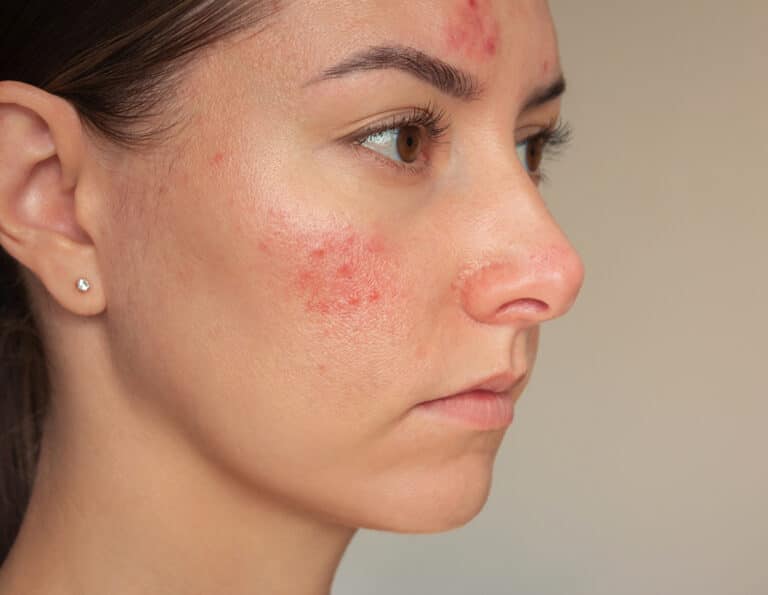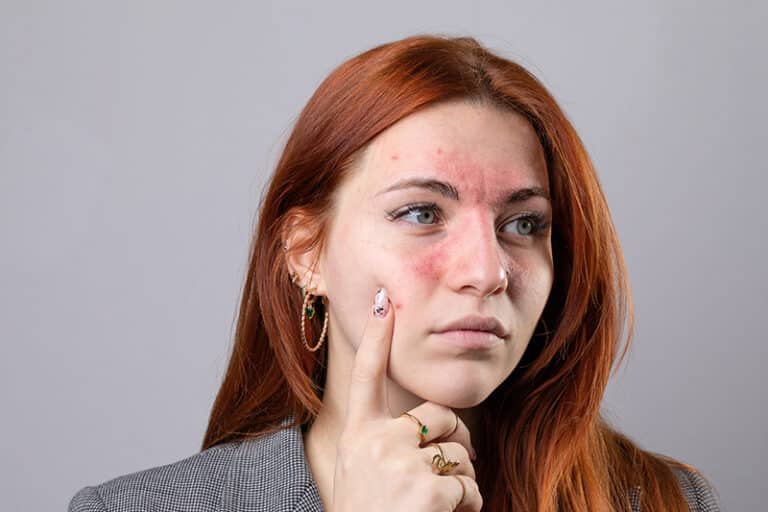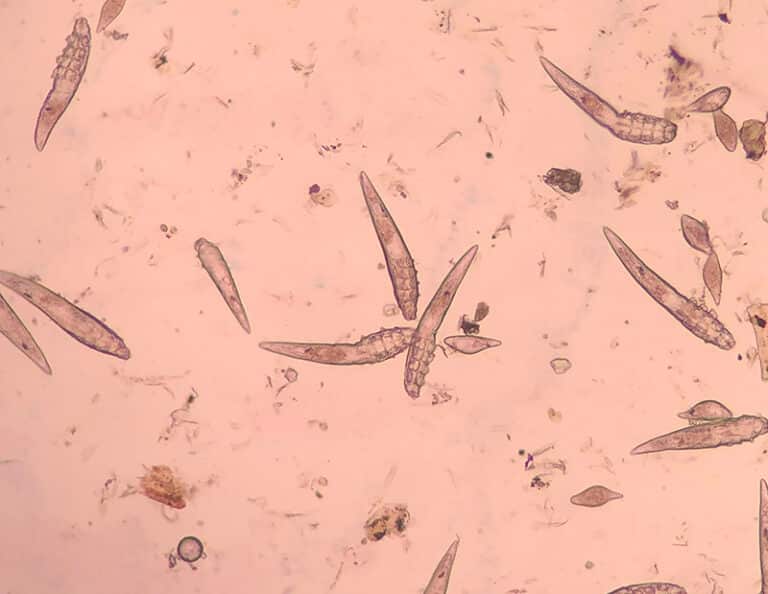Effective Rosacea Skin Treatment & Face Care Solutions
- Home
- Expert Botox & Face Treatments in Jackson, TN
- Effective Rosacea Skin Treatment & Face Care Solutions
Related Services

Understanding Rosacea: A Root Cause Approach
Calm, Soothe & Restore Your Skin
The Four Subtypes of Rosacea
Type 1
Vascular rosacea causes red areas of skin with small blood vessels on the face.
Type 2
Inflammatory rosacea also has red bumps and pus-filled lesions on the face.
Type 3
Phymatous rosacea occurs when the skin becomes thick over the nose, causing a bumpy, enlarged, bulbous appearance.
Type 4
Ocular rosacea involving the eyes, causes inflammation of the eyelids and eyes, and may or may not cause noticeable skin changes.

Flare-ups are commonly triggered by hot drinks and spicy foods, alcoholic beverages like red wine, extremes in temperature or sun and wind, exercise, emotional responses, medications that dilate blood vessels, and irritating cosmetic, skin, and hair products.
The Gut-Skin Axis: Connecting Gut Health
and Skin Conditions

The Four Subtypes of Rosacea
Incorporating healthy lifestyle habits plays
a pivotal role in symptom management
Managing rosacea effectively involves understanding its multifactorial nature through a functional root cause approach. Addressing the gut-skin axis, restoring a healthy microbiome, and reducing inflammation are key components in achieving long-lasting results.
